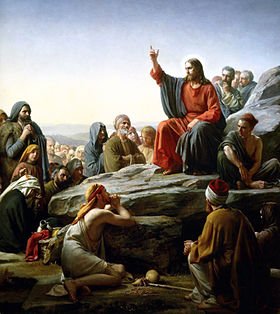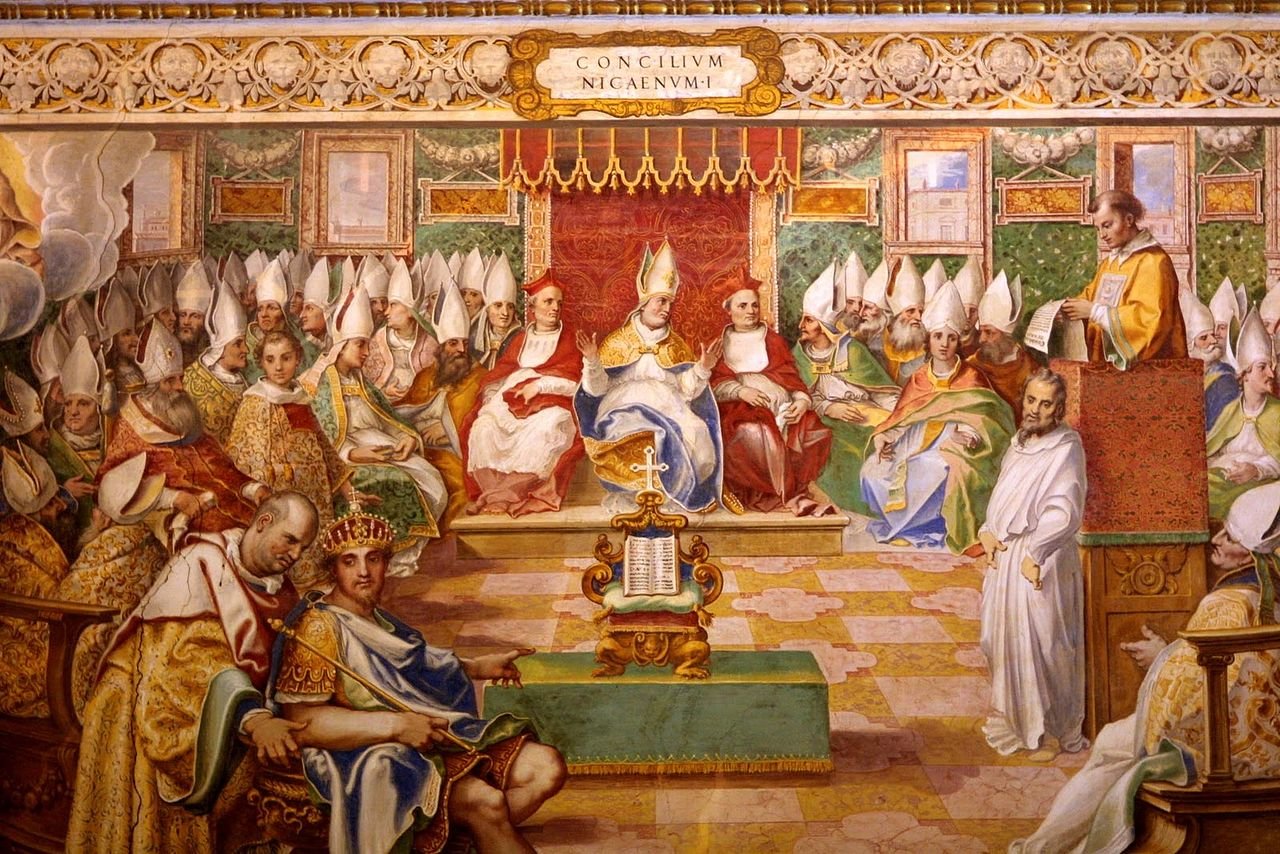@gavvet made a good post here. I found with a lengthy exchange with @positive on a completely different topic that some issues are just too deep to respond to with a reply. I did start such a reply on gavvet's post.
I do come from a Christian background
I am a person who asks lots of questions. I constantly challenge my own beliefs. I also was intuitively aware of the concept of APPEAL TO AUTHORITY at a young age though I did not actually encounter it in the fields of logic and reason until recently.
At this stage in life I see all religions similar to Hollywood Productions. What was popular two decades ago might get rereleased with tweaks to the story, new special effects, and more contemporary fashion and views of the time. Sometimes referred to as Hollywood Recycling. I believe religion does the same thing. This is how you end up with 60,000+ denominations of Christianity in the U.S. alone. Each of which believes they are following the proper path.
I am most familiar with Christianity as that is how I was raised. That is where most of my references will come from due to that simple fact. I have however, been a scholar (not practitioner) of religion since a very early age. I would take any religious, or spiritual text someone gave me or that I found and purchased and added it to my collection.
Jesus Christ is an interesting figure
I admire a lot of things about the sermon on the mount. I consider that some pretty compelling writing, and ideology.

I am not alone in such thoughts. One of the Founding Fathers of the U.S., Thomas Jefferson, even found it compelling and valuable. He was not a Christian. He was a deist. He believed that something created or at least was the catalyst for all creation, but he did not believe in miracles, revelation, or prophets. He, like myself did not believe simply because it was written in a book and someone used an appeal to authority to convince him. He did however rewrite the bible in the form of the Jefferson Bible which removed miracles, revelation, etc. It left the sermon on the mount largely intact.
Let's presume for the sake of the next points that Jesus Christ did indeed exist
It is my understanding he challenged the Pharisees for behavior and teaching styles that seem oddly familiar. It is almost as though when Christ was gone (or resurrected if you prefer) the old guard came out, embraced the new religion, and went right back to teaching the way the Pharisees taught. Christ emphasized the temple in you, and outside. After he was gone it was taken back into a structure, a temple, a place of worship. This feels very much a reversal of direction, yet using the label of Christ to try to legitimize it.
How many of the things that Christ taught do people actually follow that claim to be Christians? What about when your government tells you it is okay to do something? In my experience government trumps the laws of all religions and the "religious" embrace those changes. "Turn the other Cheek", "Thou Shall Not Kill", "Thou shall not steal", unless it is by government order.
I have stood among delegates arguing for Pro-Life stance as their most ardent issue, and a breath later they are cheering on the war of aggression against another that will kill innocent lives. Even if they were not innocent, this is still hypocrisy in the face of "Thou Shall Not Kill", it is hypocrisy in the face of the "Pro-Life" movement that they push for so ardently.
It seems very much like Jesus Christ was a free thinker and attempting to free man, and those that follow him were quick to fasten the chains of their masters about their necks after he was gone.
How many of you are familiar with the Council of Nicea
There was actually more than one, but for purposes here I am going to approach them more in terms of actions they took, and there approach.

This council of MEN like you and I was formed to gather writings into what would become the Christian Bible. I say MEN not out of any gender favoritism but more to indicate them as being human beings, just like you or I.
They gathered the writings of antiquity and formed them into a book. They decided which ones would make it into the book, and which ones would not. Depending on your subjective interpretation of these actions it could be viewed as an early case of EDITING, an early case of CENSORSHIP, or perhaps BOTH.
They then proceeded to excise the writings from before it with a few pocket exceptions that escaped here and there. This is partially why the Dead Sea Scrolls were such a major find. These were works that predated that council.
I ardently despise censorship and control of people via removal of information to illicit a specific mental view. I therefore do NOT hold much value in the bible sort of potential historical significance. I however view it as a judge would tainted evidence. We know it has been manipulated by man time and time again. We do have access to some of the works that are no longer in it such as the Book of Enoch (was in it for awhile, and is in some versions today), Gnostic Gospels, and Gospel of Judas.
They paint a picture different in many cases from that which emerged from the work produced by the Council of Nicea. They predate that council. What does that say about the history that is in the bible other than the famous quote. "History is written by the victors." (i.e. history becomes the truth THEY want you to know)

Why am I writing it this way?
This is a big topic, it does take some build up to present years of thought. I also am really poor at writing small things. Which is one of the reasons I avoid twitter so heavily.
I would like to continue on this subject, as I haven't addressed @gavvet's question yet, but this post is large and I'd like to stop here and perhaps carry on from this point later today or in the coming days.
I DO NOT typically challenge religious beliefs unless I am invited to do so. It seems that was @gavvet's intention and I promise you I will be civil, and will never besmirch your intelligence or refer to you as naive or anything of the sort. I would not believe those things of you if I were to say them. We all seek answers and understanding. I believe both science and religion often are trying to do those things. I just think religion is an attempt at taking a short cut that may not actually be true. If you believe a council of men were wiser and smarter than you then perhaps it is true.
